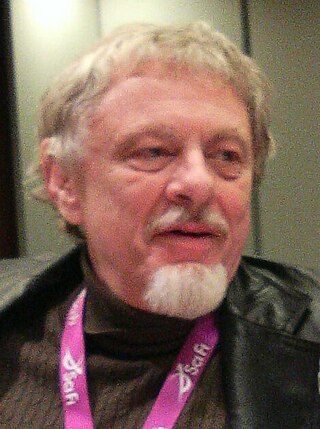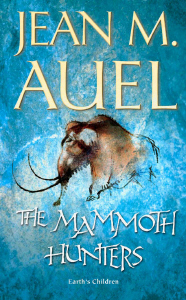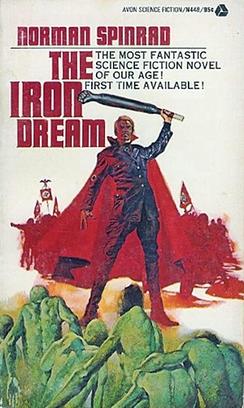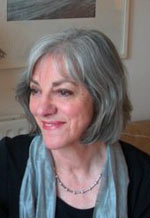
Arthur Machen was the pen-name of Arthur Llewellyn Jones, a Welsh author and mystic of the late 19th and early 20th centuries. He is best known for his influential supernatural, fantasy, and horror fiction. His novella The Great God Pan has garnered a reputation as a classic of horror, with Stephen King describing it as "Maybe the best [horror story] in the English language." He is also well known for "The Bowmen", a short story that was widely read as fact, creating the legend of the Angels of Mons.

Children's literature or juvenile literature includes stories, books, magazines, and poems that are created for children. Modern children's literature is classified in two different ways: genre or the intended age of the reader, from picture books for the very young to young adult fiction.

Norman Richard Spinrad is an American science fiction author, essayist, and critic. His fiction has won the Prix Apollo and been nominated for numerous awards, including the Hugo Award and multiple Nebula Awards.

Startide Rising is a 1983 science fiction novel by American writer David Brin, the second book of six set in his Uplift Universe. It earned both Hugo and Nebula Awards for Best Novel in 1984. It was revised by the author in 1993 to correct errors and omissions from the original edition.

Robin McKinley is an American author best known for her fantasy novels and fairy tale retellings. Her 1984 novel The Hero and the Crown won the Newbery Medal as the year's best new American children's book. In 2022, the Science Fiction and Fantasy Writers Association named her the 39th Damon Knight Memorial Grand Master in recognition of her significant contributions to the literature of science fiction and fantasy.

The Mammoth Hunters is an historical fiction novel by Jean M. Auel released in 1985. It is the sequel to The Valley of Horses and third in the Earth's Children series.

The Iron Dream is a metafictional 1972 alternate history novel by American author Norman Spinrad. The book has a nested narrative that tells a story within a story. On the surface, the novel presents a post-apocalyptic adventure tale entitled Lord of the Swastika, written by an alternate-history Adolf Hitler shortly before his death in 1953. In this timeline, Hitler emigrated from Germany to the United States in 1919 after the Great War, and used his modest artistic skills to become first a pulp science fiction illustrator and later a successful writer, telling lurid, purple-prosed, pro-fascism stories under a thin science fiction veneer. The nested narrative is followed by a faux scholarly analysis by a fictional literary critic, Homer Whipple, which is said to have been written in 1959.

Phoebe Louise Adams Gloeckner is an American cartoonist, illustrator, painter, and novelist.

Rosa Montero Gayo is a Spanish journalist and author of contemporary fiction.
Geoff Taylor is an English fantasy artist.

Michelle Paver is a British novelist. She is best known for her children's historical fantasy series Chronicles of Ancient Darkness, set in prehistoric Europe, which started with Wolf Brother, in 2004. It has sold more than 2.5 million copies and has been translated into 30 languages.

The Great God Pan is an 1894 horror and fantasy novella by Welsh writer Arthur Machen. Machen was inspired to write The Great God Pan by his experiences at the ruins of a pagan temple in Wales. What would become the first chapter of the novella was published in the magazine The Whirlwind in 1890. Machen later extended The Great God Pan and it was published as a book alongside another story, "The Inmost Light", in 1894. The novella begins with an experiment to allow a woman named Mary to see the supernatural world. This is followed by an account of a series of mysterious happenings and deaths over many years surrounding a woman named Helen Vaughan.
Pamela Wallace is an American screenwriter and author. She won an Oscar for co-writing the screenplay for the movie Witness. Wallace has also written 25 romance novels, under her own name and the pseudonyms Pamela Simpson and Dianne King.

Bug Jack Barron is a 1969 science fiction novel by American writer Norman Spinrad, first serialized in the New Worlds magazine under the editorship of Michael Moorcock. It was nominated for the 1970 Hugo Award. The novel is notable for its lyrical style and unique use of cut-up phrases. In this regard, Spinrad has cited the influence of Beat writers William S. Burroughs, Allen Ginsberg, and Jack Kerouac.

Jan Ormerod, born Janet Louise Hendry, was an Australian illustrator of children's books. She first came to prominence from her wordless picture book Sunshine which won the 1982 Mother Goose Award. Her work was noted for its ability to remove clutter to tell a simple story that young children could enjoy, employing flat colours and clean lines. She produced work for more than 50 books throughout her career, including publications by other authors, such as a 1987 edition of J. M. Barrie's Peter Pan and David Lloyd's retelling of "The Frog Prince". Ormerod began her illustrative career in Britain after moving to England in 1980, but she returned to themes connected to her home country with Lizzie Nonsense (2004), Water Witcher (2008) and the award-winning Shake a Leg (2011) for Aboriginal writer Boori Monty Pryor.
The Void Captain's Tale is a 1983 science fiction novel by the American author Norman Spinrad. The Void Captain's Tale takes place three or four thousand years in the future in an era called the Second Starfaring Age, a setting Spinrad revisited in the 1985 novel Child of Fortune. The book contains elements of confession, love story, eroticism, and horror.

Hannah Kent is an Australian writer, known for two novels – Burial Rites (2013) and The Good People (2016). Her third novel, Devotion, was published in 2021.

Bodo Kirchhoff is a German writer and novelist. He was born in Hamburg before moving with his family to Kirchzarten in the Black Forest in 1955, which he describes as a culture shock. In addition to writing literary fiction, he has worked on various projects for German television, such as long-runner Tatort, and has written movie screenplays. One of his best-known novels is Infanta (1990), which has been translated into more than a dozen languages. In 2016, his novel, which features an African migrant in Italy, Encounter won the German Book Prize.

Nebula Awards Showcase 2016 is an anthology of science fiction and fantasy short works edited by Mercedes Lackey. It was first published in trade paperback by Pyr in May 2016.

Nebula Awards 20 is an anthology of award winning science fiction short works edited by George Zebrowski. It was first published in hardcover and trade paperback by Harcourt Brace Jovanovich in November 1985.

















